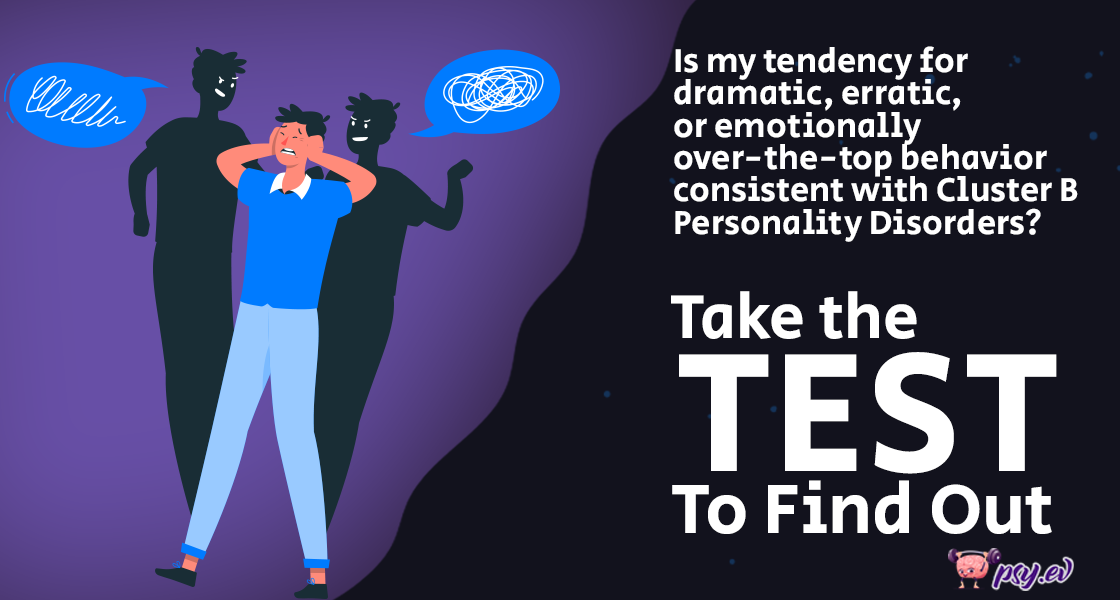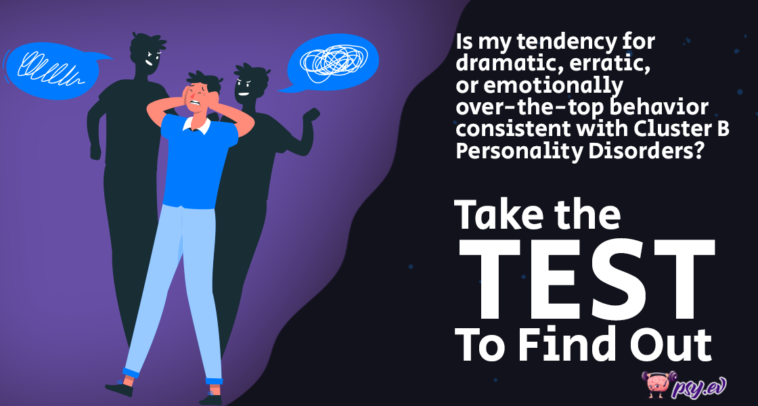There are 10 different forms of personality traits with three major groups; clusters A, B, and C. The personality disorder test is accurate and is based on clinical experiments and practices to help diagnose the disorder. If the result is positive, we advise you to visit a professional to help you treat your disorder.
Signs And Causes of Personality Disorder
Persistent, disruptive thought patterns, behavior, mood, and interpersonal interaction characterize personality disorders. People who have personality disorders frequently are unaware of the problems with their thoughts and actions.
The 10 different forms of personality disorders are divided into three groups. Each cluster has a unique set of symptoms. Cluster type A includes signs such as unusual and unconventional thoughts or conduct with disorders such as paranoid personality disorder and schizoid personality disorder.
Cluster B signs include dramatic and unpredictable actions characterized by borderline personality disorder, histrionic personality disorder, and narcissistic personality disorder. You can take the narcissistic antisocial histrionic test or the personality disorder test cluster B to determine if your symptoms fall under the Cluster B group.
Lastly, personality disorders in Cluster C include signs of severe anxiety and terror. They consist of personality disorders that are avoidant, dependent, and obsessive-compulsive. To know which cluster you fall into, opt for the “What personality disorder do I have test”.
Now that we know the signs of personality disorders, what are their causes? Researchers believe that the elements such as brain changes, childhood trauma, cultural consideration, genetics, and verbal abuse cause personality disorders.
According to research, a gene that isn't working properly may contribute to obsessive-compulsive personality disorder. Moreover, scientists have also discovered minute brain variations in those with particular personality disorders.
Your Next Steps
After taking the first step, which is taking the personality disorder test free of cost, the next few steps become easy to plan. With the help of the “What personality disorder do I have” quiz, you get to know which cluster you belong to, what you need to do, and the suitable type of treatment.
Personality disorder usually starts in late adolescence or early adulthood, the pattern of experiences and behavior leads to distress or difficulties dealing with daily activities. Personality problems may last a lifetime if untreated.
It has been demonstrated that some forms of psychotherapy successfully treat personality problems. Psychotherapy aims to help patients understand their problems, what is causing their symptoms, and how to communicate their thoughts, feelings, and actions.
A person can learn to control or cope with symptoms and lessen behaviors causing issues with functioning and relationships via psychotherapy. Even if a person with a personality disorder wants therapy, no pharmaceuticals are licensed to treat any personality disorder. Therefore, contemporary medicine is still short in treatment choices.
However, some medications can assist with anxiety and depression symptoms, which are frequent among persons with personality disorders. Working with a mental health specialist, such as a psychologist or psychiatrist, will offer you and your family support, knowledge, and direction.


